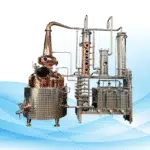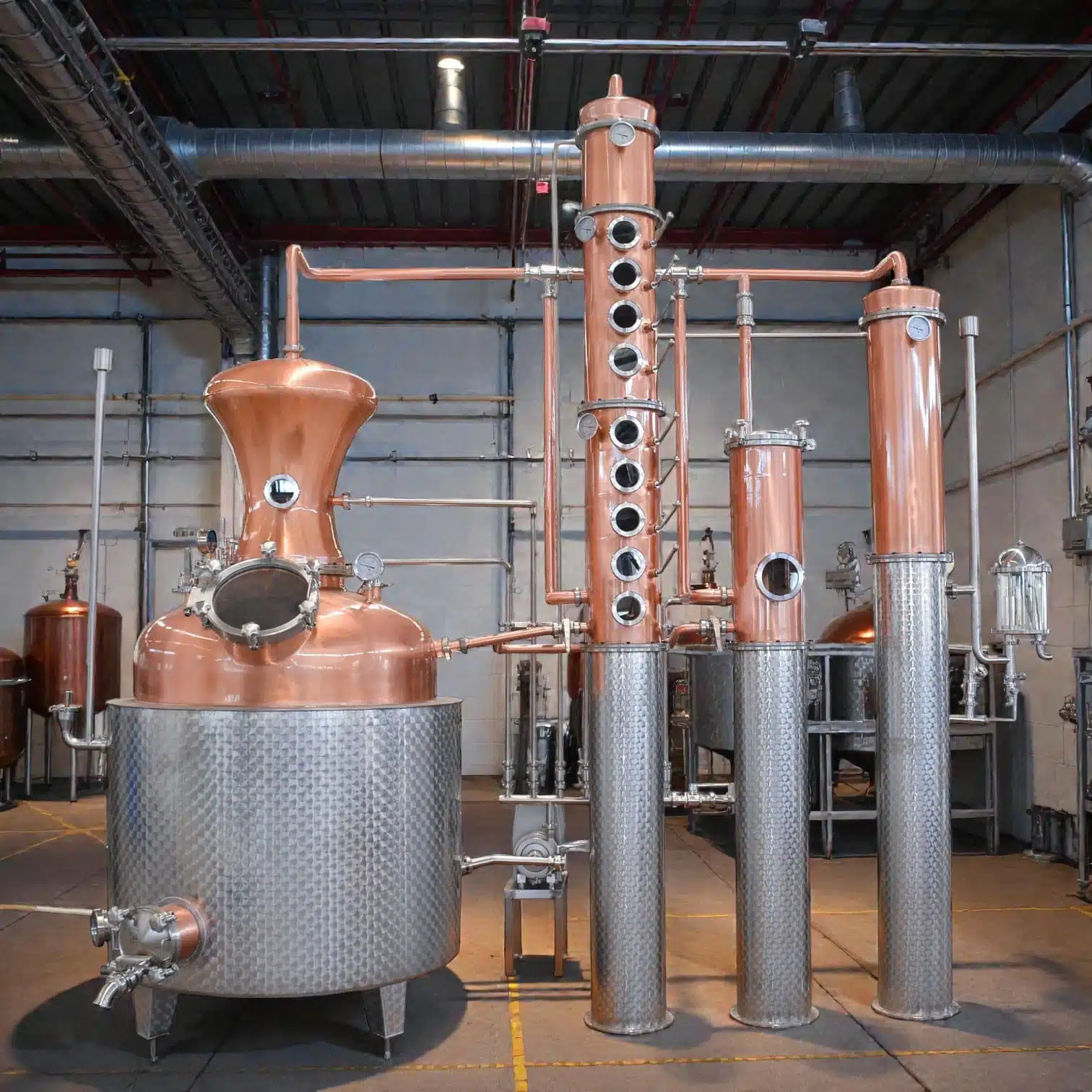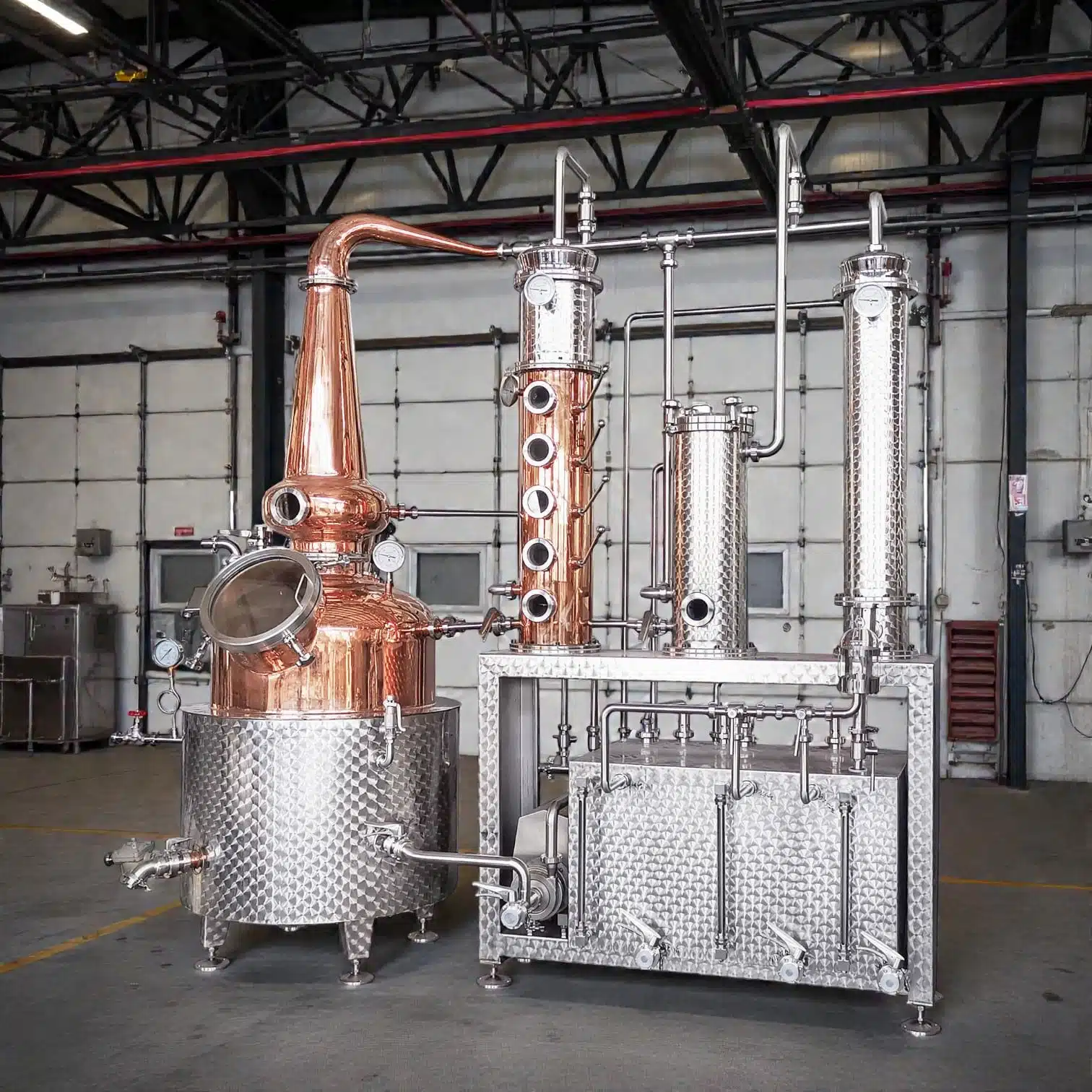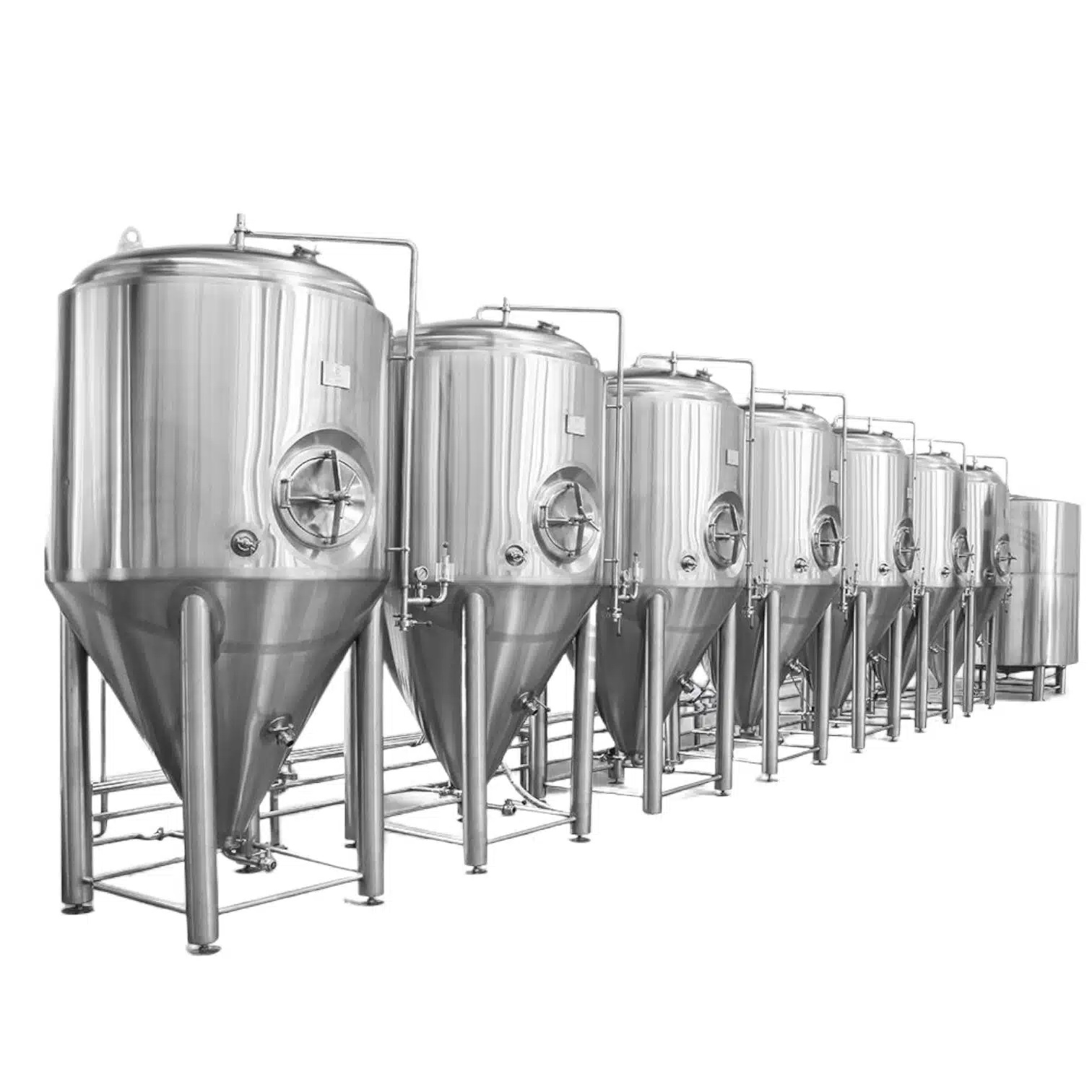Fermenter – Definition
A fermenter, popularly known as a fermentation tank, is important equipment that is used in a variety of industries to control the environment under which products such as beer, wine, dairy and other food items may be fermented. Fermenters create most suitable conditions for particular microorganisms to grow and convert raw or semi-processed materials into products by means of biochemical methods. Fermenters are equipped with devices that control temperature, pressure, and the flow of air, making it possible to carry out precise operations and produce better quality products.
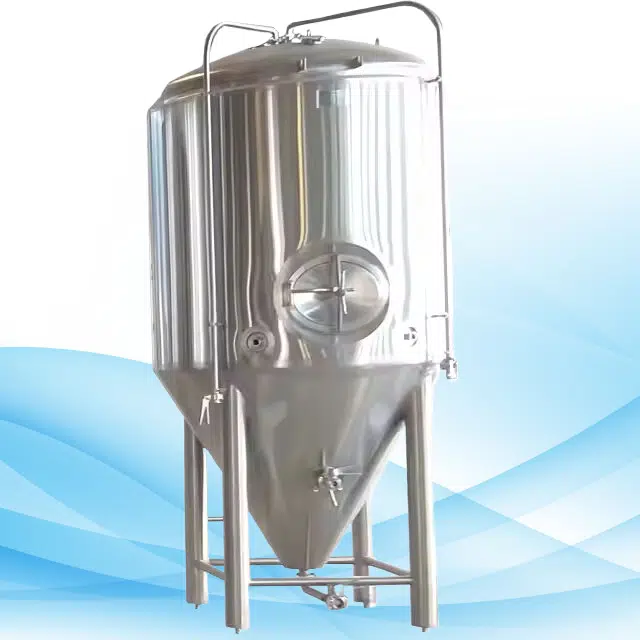
Different Types of Fermenters
Different types of fermenters are available which are designed for a specific fermentation procedure or to meet the production volume requirements. Here are some of the main types:
Open Fermenters
Open fermenters are the most basic type of fermentation tanks, as they allow for a greater air exposure during the fermentation process. These tanks can be used in some traditional brewing methods, particularly in the case of selecting a certain type of ales. The only disadvantage is that as they increase exposure, they require adequate fermentation controls to prevent contamination.
Closed Fermenters
Closed fermenters have no exposure to air as they are completely air sealed from all sides. This greatly helps in minimizing the risk of contamination. This type is utilized for both commercial and home brewing as it promotes an anaerobic fermentation, which is a necessity for many drinks such as lagers.
Conical Fermenters
These fermenters are built with a coned bottom to ensure that yeast and other sediment settles downwards. This means that when turning these solids into a liquid, which is known as ‘trub’, they are able to more easily be removed without interfering with the fermentation process. Conical fermenters are best suited for beer, wine and any other clear liquid beverage that needs to be free from sediment.
Unitanks
Unitanks are multipurpose fermenters that fully ferment and carbonate beverages. These tanks incorporate the two main fermentation processes, hence there will be no need to move the liquid into other tanks. For mass beer making, having unitanks are effective as they cut down on manpower and needing to use multiple tanks that may cause contamination.
Fermenter Features
Fermenters possess insulated panels that keep the inside a stable temperature along with various parts that aid in the maintenance, precision and operation ease.
Controlled Environment
When the environment is reliable in a fermenting tank it allows the manufacturer to manage temperature, pressure or pH which will impact the item being produced. Most modern fermenters come with programmable controllers and sensors for accuracy.
Temperature Regulation
In order to ferment correctly, having the right temperatures is core. Most fermenters are specially designed with jacketed cooling systems or use glue jackets which help maintain a certain temperature so that the tank won’t have drastic overheating or extreme cooling.
Agitation and Mixing
Certain fermenters come with built-in agitating or mixing devices. Agitation serves to distribute the yeast and other components as evenly as possible throughout the liquid, so that the whole system is more uniform and there are no thermal layers.
Sediment Separation
In particular, sediment separation is necessary in the processes tending to give rise to the beverages which require fermenting. Conical fermenters are much appreciated in this regard because their shape helps settle out particulates and thus reduces the amount of filtration that is needed for clarity of the final product.
Carbonation
For beer, kombucha, and similar drinks, carbonation is one of the most paramount parameters. Attribution in part to modifiers known as carbonation stones or diffusers, some fermenters in particular unitanks have CO2 levels kept at certain concentrations.
What is the Cost of a Fermenter?
A fermenter can range in price depending on its size, material, type, and any extra features. Here’s a general overview of the costs associated with different fermenters:
- Small Scale Fermenters: 100 to 500 dollars for homebrew and hobbyist fermenters which are usually straightforward open or conical tanks constructed from steel or plastic encasing.
- Mid-Range Fermenters (commercial use but low capacity): Prices range from $1,000 to $5,000. Mainly appearing in the agro-based industries, these are designed as either conical or closed fermenters made of T304 bottom grade or T316 top grade stainless steel with heating and cooling modes along with sediment removal features.
- Large Scale Fermenters (industrial use): Prices range from $10,000 to over $100,000 depending on the size of the fermenter being purchased. These are large volume, stainless-steel fermenters with a full complement of glycol jackets, carbonation systems, and PLC control automated monitoring for more efficiency.
Apart from the base price, businesses should take into account the cost of installation and maintenance requirements alongside possible cosmetic alterations which might increase the total cost.
Where Are The Fermenters Used
Within several industries and their respective processes, fermenters are essential equipment for the final outputs, collectively among many products:
Winemaking
Fermenters find applications in all areas of winemaking, and temperature and sediment control is crucial for the wine quality. Conical fermenters and closed fermenters are widely utilized in the brewing industry to reduce the sediment of wine and fermentation temperature.
Brewing
Various types of beer such as ales, lagers, etc. can be manufactured with the use of fermenters and this is the reason why the brewing industry is dependent upon fermenters greatly. For both the primary and secondary fermentation, conical and unitank fermenters are widely used, especially since yeast sediment can be easily removed and carbonation can be done in the tank.
Dairy Industry
In the dairy industry, fermenters are used to produce yogurt, kefir, and certain types of cheeses. These tanks must be thermoregulated and pH controlled in order to grow the bacteria and ferment the products. There are a number of dairy fermenters that have low-speed stirrers in order to maintain a consistent texture throughout the product.
Food Processing
Fermentation is also an important biological process involved in the manufacture of pickles, sauerkraut, kimchi, and soy sauce. In food processing, fermenters are used in order to create and control the optimal conditions for microorganisms that will enhance the flavor, texture, and nutrients in the foods.
Distillation
Fermenters are prominent in the distilling industry where whiskey, rum, and vodka are made. These fermenters are generally big closed systems that are able to control temperature and pH in order to maintain high quality.
Non-Alcoholic Beverages
Kombucha, kefir water, and even sodas are also fermented non-alcoholic beverages. With the use of special fermenters, it is possible to carbonate, control the acidity of the solution, and create favorable conditions for the yeast.
Conclusion
The prices of differently configured fermenters are bound to vary, ranging from basic small home-use fermenters to advanced fermenters intended for medium to large-scale industrial use. For all the needs in the industry, these can be in the form of small fermenters ideal for home brewing or large fermenters necessary for industrial production. Knowing the types, features, applications, and other aspects of fermenters, businesses as well as individuals can strategically purchase according to their objectives and the amount of budget allocated to the purchase.









